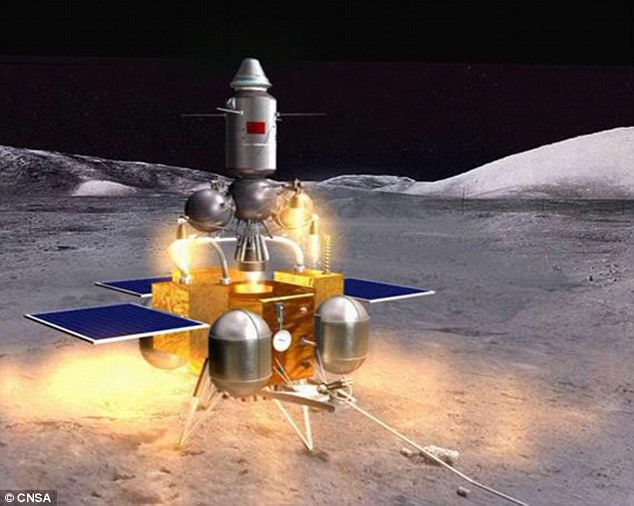China spacecraft enters orbit for possible mining mission

The service module of China's unmanned test lunar orbiter successfully entered an eight-hour orbit around the moon, state media reported.
Chang'e 5 is being designed to make a soft landing on the moon and collect at least 4lbs (2kg) of rock and soil samples before returning to Earth.
Should the mission prove successful, this would make China the third country after the US and Russia to complete such a feat.
The People's Republic of China is seeking to mine the moon for the rare helium isotope that scientists believe could alleviate a worldwide demand for energy in the future, according to a Times report.
Professor Ouyang Ziyuan, the chief scientist of the Chinese Lunar Exploration Program, said, the moon is "so rich" in helium 3, that this could "solve humanity's energy demand for around 10,000 years at least."
Helium 3 could power clean fusion plants, claim scientists. The isotope is light and non-radioactive. Nuclear fusion reactors using helium-3 could provide a highly efficient form of nuclear power with virtually no waste and negligible radiation.
According to Matthew Genge, lecturer at the Faculty of Engineering at the Imperial College in London: "Nuclear fusion using helium-3 would be cleaner, as it does not produce any spare neutrons. It should produce vastly more energy than fission reactions without the problem of excessive amounts of radioactive waste."
40 tonness of helium 3 – enough to fill the cargo bays of two space shuttles –could power the US for a year at the current rate of energy consumption.
However, helium 3 is so rare on the Earth because our atmosphere and magnetic field prevent any of the solar helium 3 from arriving on the surface.
The orbiter, which flew back to Earth in November, was loaded with support systems for operating a spaceship. It will collect further data to aid planning of the 2017 Chang'e 5 mission, state broadcaster China Central Television said.
© Copyright IBTimes 2025. All rights reserved.






















